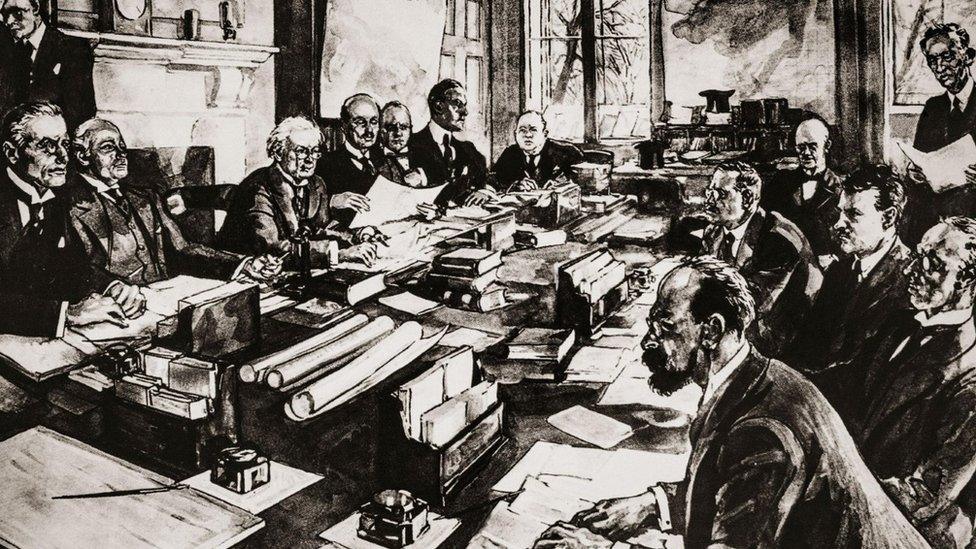Sir Henry Wilson: Murdered MP remembered at Westminster
- Published
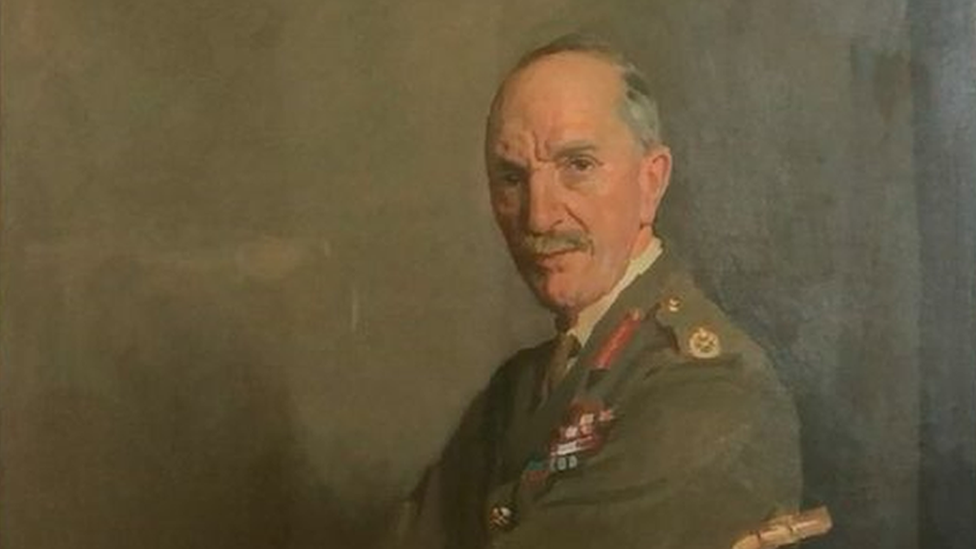
A portrait of Sir Henry Wilson hangs at City Hall in Belfast
A plaque was unveiled in the House of Commons on Wednesday to remember an Ulster Unionist MP who was shot dead by Irish republicans 100 years ago.
Sir Henry Wilson reached the rank of field marshal in the British Army.
He was elected MP for North Down in February 1922.
Four months later, he was killed by Irish Republican Army (IRA) gunmen in London after attending a World War One commemoration.
On the 100th anniversary of his death on 22 June 1922, a plaque in his memory was unveiled at Westminster.
The Commons Speaker, Sir Lindsay Hoyle, hosted a short ceremony in the chamber to remember Sir Henry before the start of business.
A numbers of MPs were there including Jacob Rees-Mogg and the DUP's Ian Paisley, who campaigned for a tribute to Sir Henry at Westminster.
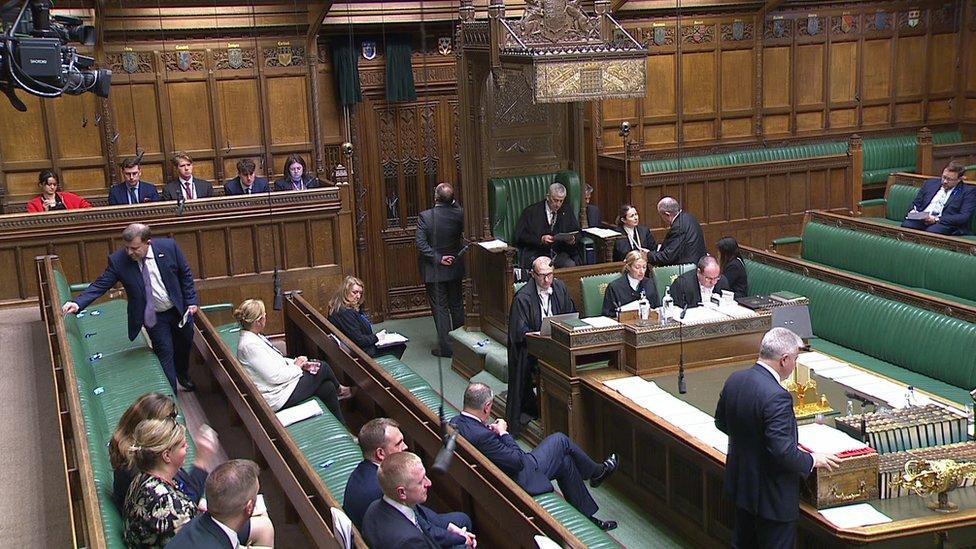
The plaque, to the left of the speaker's chair, was unveiled in the House of Commons on Wednesday
Later, at the start of Northern Ireland questions, the NI Secretary of State Brandon Lewis thanked the Speaker for unveiling the plaque.
DUP MP Ian Paisley believes the recognition of Sir Henry is long overdue.
"Unfortunately he was murdered by the enemies of Northern Ireland and that murder still resonates today with people, even though he doesn't have much of a family left," he said.
"I think it's up to us, as the inheritors of what that generation gave us, to ensure that his memory will be forever in this place at Westminster."
Sir Henry had been security adviser to the newly-created Northern Ireland government, which was established in 1921 after the partition of Ireland.
The IRA gunmen who killed the MP were Reginald Dunne and Joseph O'Sullivan.
Both were later caught by police.
O'Sullivan had a wooden leg which hampered his escape.
Both men were subsequently executed.
At the time, the IRA was divided over the Anglo-Irish Treaty which had been signed the previous year, bringing an end to the war of independence.
There are conflicting views on whether Dunne and O'Sullivan carried out the killing on behalf of a pro-Treaty or anti-Treaty faction, or whether it was their own decision to shoot the MP.
Whatever the reason, the killing is widely regarded as one of the key factors which led to the outbreak of civil war in Ireland soon afterwards.
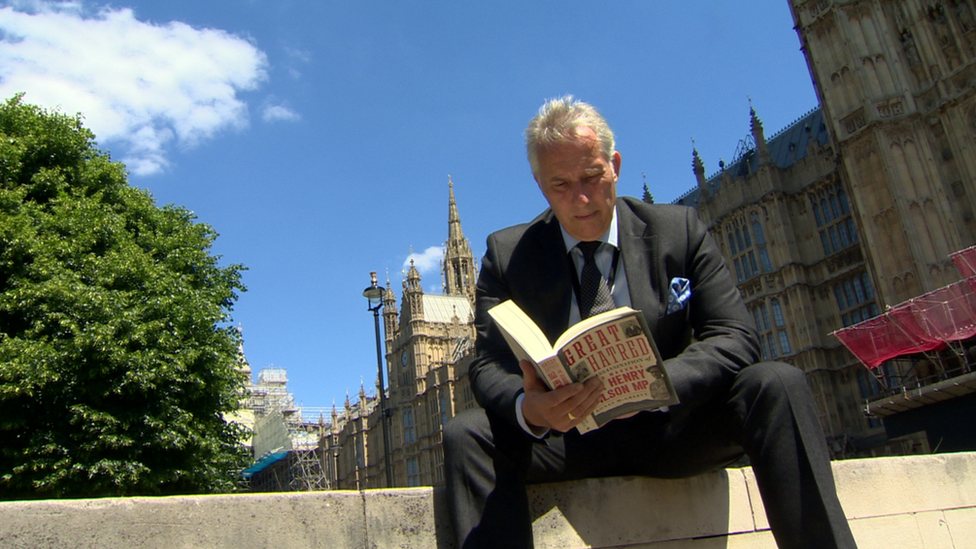
DUP MP Ian Paisley believes the recognition of Sir Henry Wilson is long overdue
Britain blamed the killing on anti-Treaty republicans and put pressure on the pro-Treaty provisional government in Dublin to take a tougher stance.
Violence soon exploded in the city.
The early 1920s was a pivotal period in Irish history.
The historian Prof Fearghal McGarry, from Queen's University in Belfast, said Sir Henry's reputation as a military hardliner made him a hate-figure for Irish republicans.
His early years were spent in County Longford, but by the time of his death, aged 58, he was spending most of his time in London.
"He saw himself as being Irish, but he was committed to the union, and he was committed to the British empire," says Prof McGarry.
"Wilson's killers - Reggie Dunne and Joe O'Sullivan - were born in England, they had English accents.
"They'd even served in the British Army, in the same army as Wilson, but of course they saw themselves as Irishmen.
"It's a really interesting example of how political identities don't map onto geographical identities."
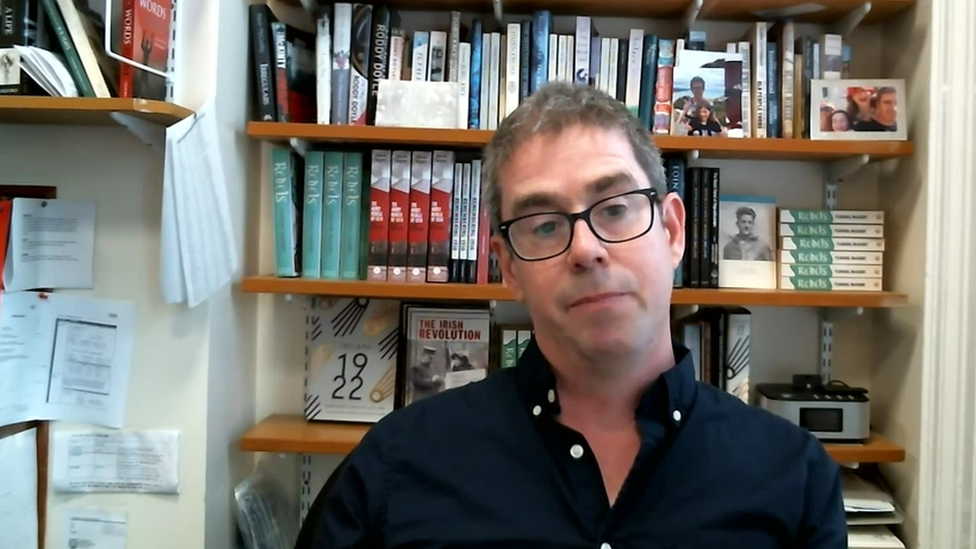
Professor Fearghal McGarry said Sir Henry's reputation as a military hardliner made him a hate-figure for Irish republicans
The Ulster Unionist Party leader Doug Beattie said Sir Henry had a highly distinguished military career.
He said: "He was clearly one of a kind, and so great was the impact of his murder that Parliament was suspended and the Prince of Wales cancelled his birthday party planned for that evening in Buckingham Palace.
"He was described by Edward Carson as 'Ireland's greatest son ... he died for Ulster's liberty'.
"There can surely be no more fitting epitaph than that."
The funeral of Sir Henry was held at St Paul's Cathedral in London.
There is a portrait of him which hangs at Belfast City Hall.
- Published6 December 2021
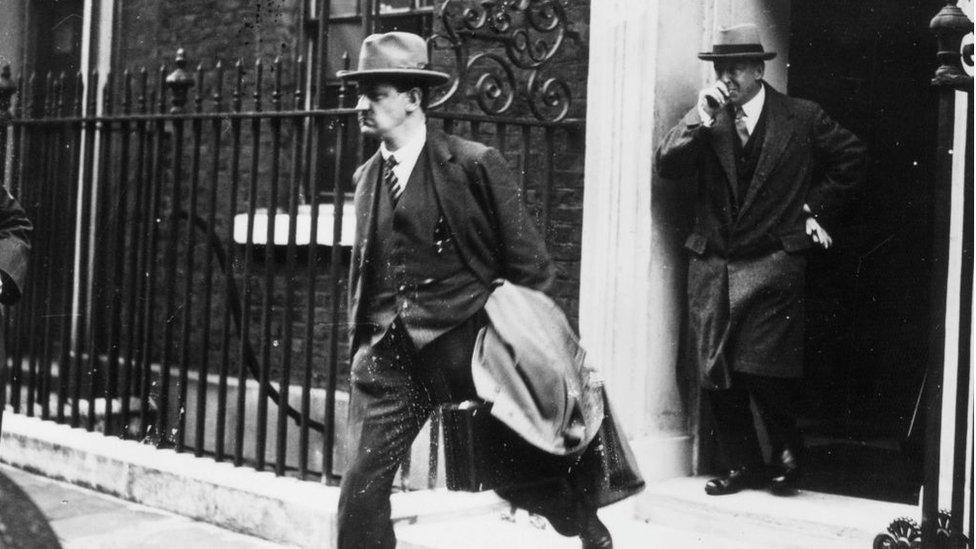
- Published6 December 2021
